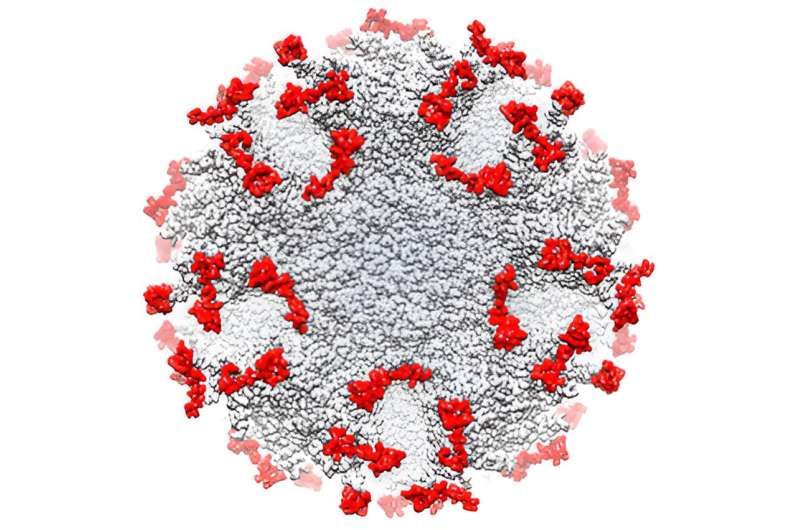
New research has demonstrated the potential for the ADDomer platform to produce thermostable vaccines and reagents to tackle viral infections The study led by the University of Bristol and Imophoron, a biopharmaceutical company developing thermostable nanoparticle vaccines using its ADDomer platform, is published in Antibody Therapeutics today (Nov. 29) under the title “In vitro generated antibodies guide thermostable ADDomer nanoparticle design for nasal vaccination and passive immunization against SARS-CoV-2.”
The research team explored the innovative technology behind the development of an ADDomer vaccine targeting severe acute respiratory syndrome COVID-19 (SARS-CoV-2).
The study, using an integrated approach, combined synthetic, computational and structural methods with in vitro antibody selection and in vivo immunization to design, produce and validate nature-inspired nanoparticle-based vaccines and reagents.
The research demonstrates the use of Imophoron’s patented multivalent nanoparticle superbinder technology against SARS-CoV-2, including immune-evasive variants of concern.
Imre Berger, Professor of Biochemistry and Director of the Max Planck-Bristol Center for Minimal Biology at the University of Bristol, and co-author on the paper, said, “COVID-19 reminds us of the critical importance of being prepared for the next pandemic, requiring innovative approaches to help and speed up reagent and vaccine development against emerging threats.
“Our study demonstrates the use of ADDomer-based nanoparticles in active and passive immunization and provides a blueprint for developing reagents and vaccines to tackle respiratory viral infections.”
Richard Bungay, Chief Executive of Imophoron, commented, “This important paper highlights Imophoron’s unique ADDomer and Gigabody technology platforms and their significant potential in developing novel, thermostable vaccines to combat infectious diseases.
“The research represents a significant milestone for our team of world-class scientists, in collaboration with the excellent team at the University of Bristol, in our ongoing commitment to advancing global health.”
More information:
Dora Buzas et al, In vitro generated antibodies guide thermostable ADDomer nanoparticle design for nasal vaccination and passive immunization against SARS-CoV-2, Antibody Therapeutics (2023). DOI: 10.1093/abt/tbad024
Provided by
University of Bristol

READ MORE
Listen to These Amazing Sounds of Lost Places and Animals Within Them
One of the species Stewart captured on audio is the Panamanian Golden Frog, a once-common [...]
The Atlantification of the Arctic Ocean is Underway
Analyzing DNA found in the water off Greenland, researchers have found the signs of species [...]
A new antimicrobial cotton textile with Cu ions in nanofibers
Credit: Brookhaven National Laboratory Cotton textiles are ubiquitous in daily life, and they are also [...]
After a Successful Test Flight to the International Space Station, SpaceX Looks Ahead to Launching Astronauts
The SpaceX Crew Dragon spacecraft docked to the International Space Station. NASA Over the course [...]
When Is It OK to Leave Kids Unequal Inheritance?
An unequal estate plan may seem perfectly logical on paper, but financial experts think it [...]
How Mummies Work
Researchers develop nanoparticle treatment approach for optimized pancreatic cancer therapy
Synthesis and characterization of [ZrO]2+[GMP]2− IOH-NPs: a) Scheme illustrating the aqueous synthesis, b) particle size [...]
Mapping the future of micromotors
Representative hydrogel-based thermo-responsive micromotors. (a) A microgripper shrank and grasped the cargo when the temperature [...]